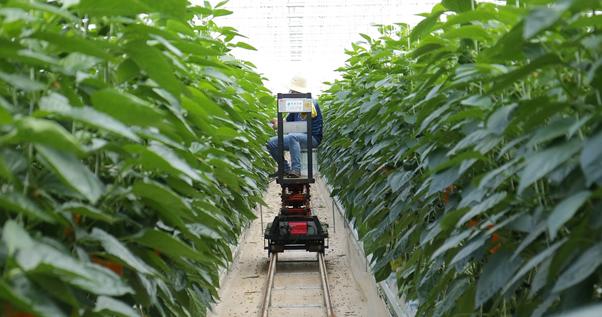
The rise of Artificial Intelligence (AI) over the past decade is one of the most important, and potentially significant advancements in human history. The final conclusion of which, is still to be determined. Even after such revolutionary progress, there still remains a collective which sees AI as a threat and hinderance, rather than a beneficial solution to many of the problems we face today. However, amidst this skepticism, there are vast international and governmental bodies of research and innovation which are working to ensure the opposite is the case.
The revolutionary stance of looking at AI to help sustainability has been gaining momentum over recent years, bringing to light some key questions at just the right time. More beneficially, this movement has been driving innovation into areas where businesses can use AI as a tool for a more sustainable future. This can be seen happening right now, as a recent sector deal confirmed a £1bn investment into the UK’s AI industry, making it a research hub for Europe. In fact since 2014, the annual figure for AI startups launched has more than doubled, and today, an AI startup is founded every five days in the UK.
The general consensus is that AI can be used to develop a more sustainable and resourceful future across the world. This is based on the advancement of key capabilities within AI. These have largely been centred around speech recognition, language processing, machine learning and imagine classification, as well as general field data analysis.
So how and where can businesses leverage AI for sustainable development? Work has already begun on this front and below, we present a few examples of this application being put into practice across the green industries.
Agriculture
As one of the long-standing and vital industries across the world, agriculture has already started to see investment in the AI revolution, with many hoping for lower consumption of crucial resources and more efficiency throughout the farming and distribution processes.
Over recent years, Nectar, the Canada based AI startup, has developed a fully integrated beehive management system which has revolutionised the beekeeping process. Once a beekeeper has installed the custom sensor, they are able to monitor the behaviour of an entire beehive straight from their smartphone, in real time. This enables the efficient management of time and resources, without disturbing the colony.
Another major AI breakthrough recently took place when San Francisco based company, Plenty, closed the biggest ever Series A agtech funding round. SoftBank Vision, which is the world’s largest technology fund, invested over $200m into the vertical green-house company.
Plenty has revolutionised and disturbed the agricultural industry due to its unorthodox process of crop growing. The company uses various AI enabled sensors and machine learning to vertically grow their crops indoors, utilising only natural nutrients, water and light.
Plenty has claimed that their technique uses only 1% of the water used in traditional farming, all whilst growing over 350x more produce per square meter. With over $200m already being invested, this figure is set to only increase over the coming years.
Energy
There is a lot of excitement around how businesses are currently implementing AI to connect consumers with providers, as well as storing energy and supplying it when needed. In real time, AI is being used to predict the peaks in energy consumption and help suppliers to optimise their various operational and distribution processes.
Gridhound, a German company which targets network providers, has developed an advanced and revolutionary cloud-based Distribution Management System. The system enables providers to not only monitor in real-time, but also optimise their distribution grids by using a pay-per-use software solution, powered by machine learning.
Amidst the investment into privatised organisations, there is also tremendous work being done on the research side. The Berkley Lab’s Materials Project is a great example of this. They combine density functional theory calculations with machine learning to identify new and promising material compounds, which could be used in the future to cease the use of precious non-renewable resources.
The above examples presented in this article are just a few which have taken place over recent years. Furthermore, there is terrific AI focused work being done across various green sectors such as Energy For Waste, Energy Storage and Resource Efficiency, to name a few. For this to continue, we as businesses have to create incentives for innovators to develop AI applications for a more sustainable future. At Green Recruitment Solutions, incentives we offer include exclusive talent for our clients, as demand for niche talent far outstrips supply. To discuss this further or if you seek professional recruitment support, please contact Irfan Lohiya on:
T: +44 121 285 6070
M: +44 7580 170 406
E: ilohiya@greenrs.co.uk
W: greenrs.co.uk

